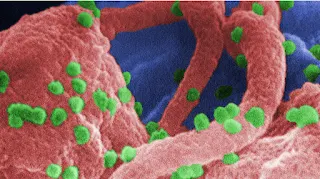Dear 222 News viewers, sponsored by smileband,
Staying Safe from HIV: Protecting Yourself from a Dangerously Infectious Virus
Human Immunodeficiency Virus (HIV) remains one of the most significant public health challenges worldwide. While advances in medical science have made it possible for people living with HIV to lead long, healthy lives, prevention remains critical to stopping the spread of this highly infectious virus. Here’s what you need to know to stay safe and informed.
Understanding HIV
HIV is a virus that attacks the body’s immune system, specifically the CD4 cells (T cells), which help the body fight infections. If left untreated, HIV can lead to Acquired Immunodeficiency Syndrome (AIDS), a severe condition where the immune system is too weak to fight off infections and diseases.
HIV spreads through the exchange of certain body fluids, such as blood, semen, vaginal fluids, rectal fluids, and breast milk. It is not transmitted through casual contact, such as hugging, shaking hands, or sharing utensils.
How to Stay Safe
Protecting yourself and others from HIV involves a combination of education, awareness, and proactive measures.
1. Practice Safe Sex
Using condoms correctly every time you have sex significantly reduces the risk of HIV transmission. It’s important to choose high-quality condoms and use water-based lubricants to prevent breakage.
2. Get Tested Regularly
HIV testing is vital for early detection and prevention. Many people with HIV may not show symptoms for years, so regular testing ensures that the virus is caught early and treated promptly. Rapid and confidential HIV testing is available at clinics, pharmacies, and community centers.
3. Consider PrEP and PEP
Pre-exposure prophylaxis (PrEP) is a daily medication that can reduce the risk of HIV infection by up to 99% for those at high risk. Post-exposure prophylaxis (PEP) is a treatment taken within 72 hours of potential exposure to HIV to prevent infection. Speak to a healthcare provider to learn more about these options.
4. Never Share Needles
If you use injectable drugs, avoid sharing needles, syringes, or other drug paraphernalia. Many communities have needle exchange programs to provide safe and sterile equipment.
5. Protect Your Blood Supply
In medical and personal settings, ensure that any blood products or needles are properly screened and sterile. This is particularly important when receiving tattoos or piercings.
6. Stay Informed
Education is a powerful tool in the fight against HIV. Learn about the virus, how it spreads, and the importance of early treatment. Share this knowledge with others to reduce stigma and promote safer practices.
Advances in Treatment
Thanks to antiretroviral therapy (ART), people living with HIV can suppress the virus to undetectable levels, meaning they cannot transmit it to others (known as U=U, or Undetectable = Untransmittable). This underscores the importance of regular testing and starting treatment as early as possible.
Breaking the Stigma
Stigma and misinformation about HIV can prevent people from seeking the help they need. By fostering a culture of understanding and support, we can encourage individuals to get tested and treated without fear of judgment.
Final Thoughts
HIV remains a dangerous and highly infectious virus, but with the right precautions and a commitment to awareness, its spread can be effectively controlled. Protecting yourself and your community starts with education, safe practices, and regular testing. Together, we can reduce the impact of HIV and move closer to a future free from this virus.
For more information, contact your local health authority or visit global organizations such as UNAIDS or the World Health Organization (WHO).
Attached is a News article regarding HIV
https://www.bbc.co.uk/news/topics/c008ql15118t
Article written and configured by Christopher Stanley
<!-- Google tag (gtag.js) --> <script async src="https://www.googletagmanager.com/gtag/js?id=G-XDGJVZXVQ4"></script> <script> window.dataLayer = window.dataLayer || []; function gtag(){dataLayer.push(arguments);} gtag('js', new Date()); gtag('config', 'G-XDGJVZXVQ4'); </script>
<script src="https://cdn-eu.pagesense.io/js/smilebandltd/45e5a7e3cddc4e92ba91fba8dc



No comments:
Post a Comment